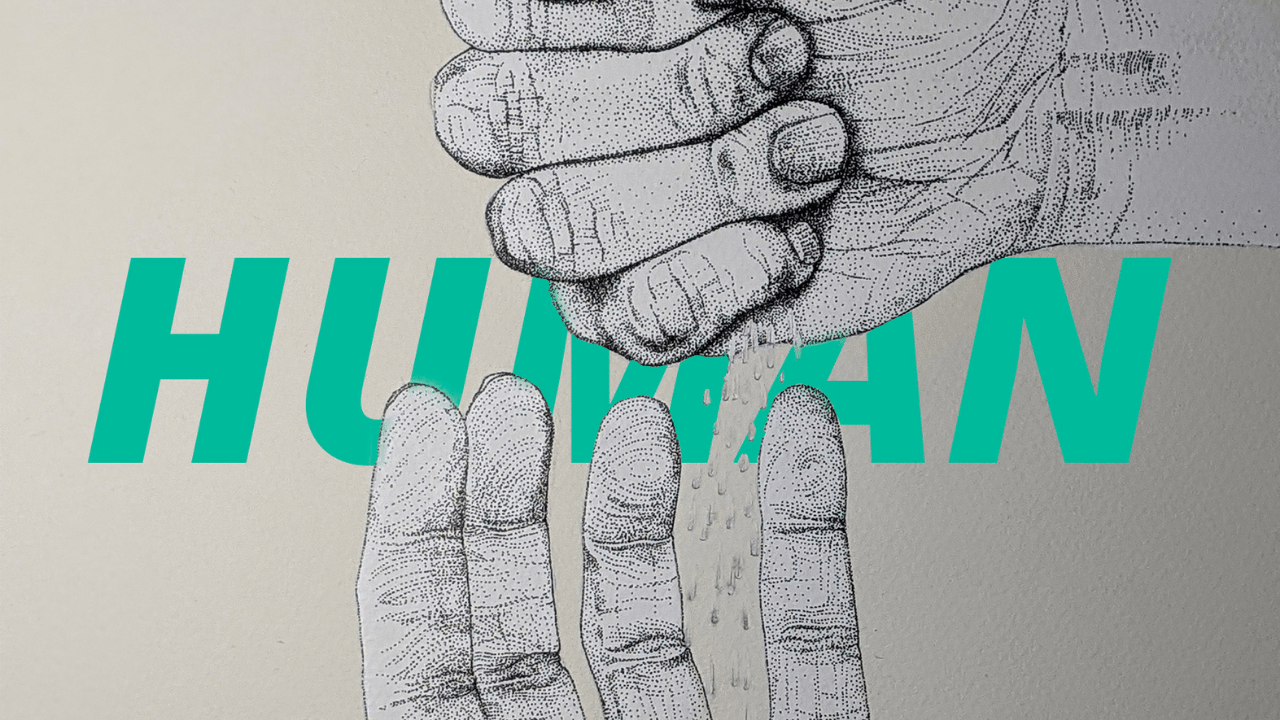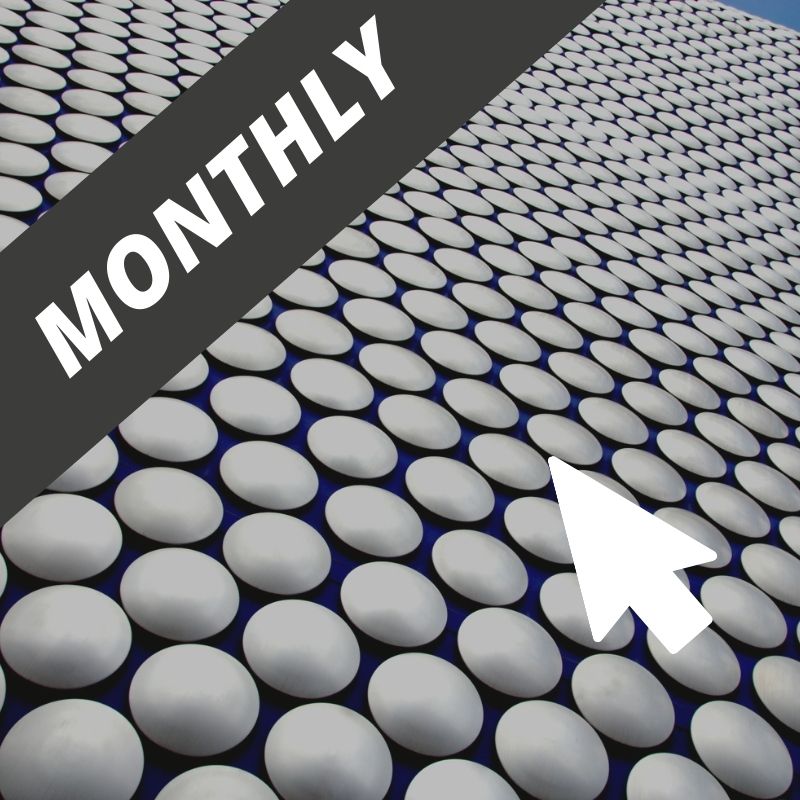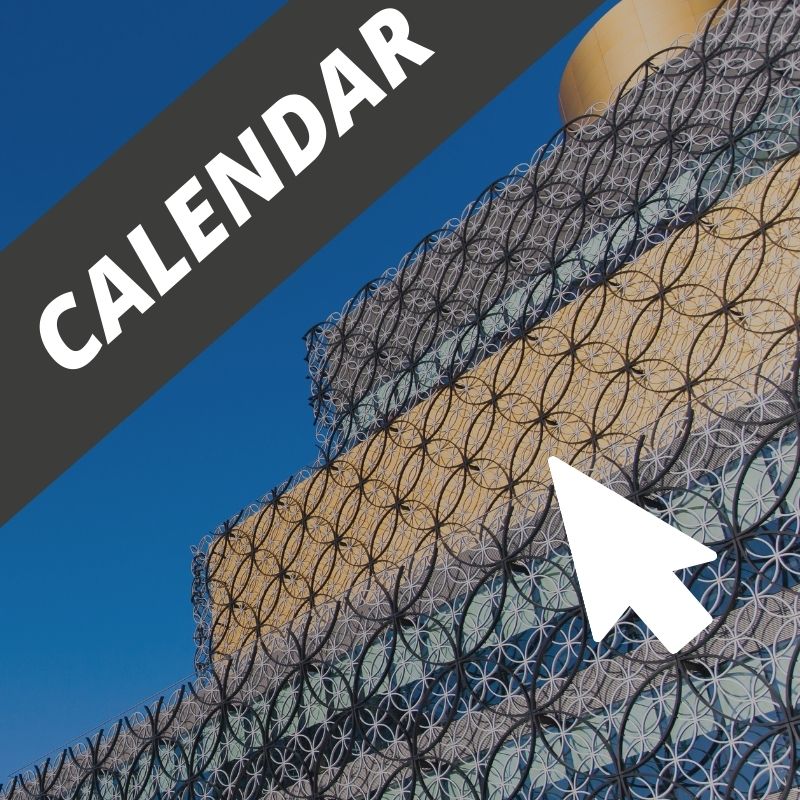Teaching Series Introduction:
People are complex. You and I are complex. How do we understand ourselves and each other? How do we move toward one another in God-honouring ways? How do we love wisely in the context of everyday relationships?
(Michael Emlet)
One of the most memorable songs in recent years is the song ‘Human’ by Rag ‘N’ Bone man. It’s an honest reflection on the complexity of human relationships, with the line ‘I’m only human after all. Don’t put your blame on me.’ It’s something we’ve all felt at times – I’m just human, don’t expect perfection! The word ‘human’ originally means ‘of the earth’. It’s where we get our word humours from – dust, from the ground, from the earth.
During 2020, we’ve had a glimpse of some of the limits of our humanity, but also some of the best of us humans. And, as we begin to emerge out of this pandemic, it’s worth getting back to basics to remember some foundations of what it means to be human. When we know who we are, we can rebuild for what’s ahead.
Our guide will be the very opening words of the Bible. Yes, the first few chapters of Genesis provide is with rock-solid foundations to be able to navigate uncharted times. We’ll be thinking about our purpose, our relationships, our sexuality, our identity, and how we live in changing times. We’ll be grappling with some pretty big questions that we all face in life.
And as we do so, we’ll discover the freedom in being neither dust nor divine. Yes, join us at Riverside to find the freedom in being able to say “I’m only human after all!”
Session 4
Title: Human – Session 4: Home is where the heart is
By: Nathanael Ballew
Date: 7 February 2021
Bible Passage: Genesis (Chapter 2, verses 4 – 17)
Work is a good gift from God. But, work should never be a god. This is pre-fall and so we know that work is not a curse. It’s when we realise that we join with God in his work that we discover purpose. And we also discover how to rest from work.
Children’s Resources:
If you would like to know about how you can get connected with our children’s groups please contact us, we would love to hear from you.
Activity Sheet
Colouring Sheet
Youth Resources:
Resources are sent out to all parents each week via e-mail. If you are not receiving these emails or would like to know about how you can get connected with our youth groups please contact us, we would love to hear from you.
STUDY QUESTIONS
- Do you think looking after our world is important? Why/why not? How important is it in your life, do you think?
- Read Genesis 2:4-17. What do you think it means to ‘work the ground’ (v5) and ‘take care’ of it (v15)?
- What do you notice about the relationship between God, the earth and mankind in this passage? Why might this relationship be important today?
- In verse 7, we read about where the word ‘human’ comes from – being created ‘of the dust/earth’. How might this helpfully say something about our status as humans?
- In later weeks in this series, we will explore what the ‘tree of life’ and the ‘tree of knowledge’ might be (v9). But, for now, what do you notice about the things that God provides for humanity in this passage?
- Someone says to you, ‘We shouldn’t worry what happens to the planet, what’s most important is people.’ Do you agree/disagree? Why?
- Take some time to pray for the world we live in, and our responsibility to ‘work’ and ‘care for’ it. What actions might you take this week as a result?
FURTHER STUDY RESOURCES
VIDEOS: See some brilliant videos, created by our ‘Elijah’ team at Riverside on how we can play our part: https://www.youtube.com/playlist?list=PL9IPjZqRz3xKnV-fngYC9Uw7ghZeAAb5C
ARTICLE: https://www.solas-cpc.org/creation-stewardship-for-the-glory-of-god-and-the-good-of-our-children/
ARTICLE: https://arocha.ca/wp-content/uploads/2017/03/article_caring-for-gods-world_john-stott.pdf
DEEPER STUDY: https://www.etsjets.org/files/JETS-PDFs/49/49-3/JETS_49-3_449-488_Moo.pdf
Watch Online: YouTube
Listen Online: Podcast
Transcript:
Well, it’s great to get to continue this series, Human, as we go through the first book of the Bible, Genesis. And so far in this series, we’ve looked at whose story this is about, God, the creator of the universe. We’ve looked at our identity and value in being made in God’s image. And last week, Sarah drew out our relationship with work versus rest.
Now today, I’m going to be unpacking some more of Genesis two, but specifically looking at our role as stewards of the Earth. In the creation account try to listen out for the detail and description and the time taken to name the rivers and celebrate what is beautiful and wonderful about it all, how precious it all was portrayed to be. Naming something gives it value, and it shows that there is some sort of relationship there. It is why we give our pets names, and why knowing how to pronounce and spell someone’s name is actually a really loving thing to do.
Now something that I’m really looking forward to coming up is Chinese New Year. It’s this Friday. And as we draw the curtains on the year of the rat, it’s only right to tell another rat story. I know Tim told one a few weeks ago, but they are a part of nature, after all.
So when I was growing up in Macau when I was about seven or eight years old, we moved house. We moved into a five story flat. The top floor, there was no lift, and it was a pretty old building. And as we settled in, we started to notice a couple of strange things happening, some markings on our fruit and on our chocolate. And my parents drew the conclusion that we had a rat in the flat.
That sounds like a Dr. Seuss book, a rat in the flat. So anyway, my dad set out some traps, and we were trying to be extra careful. And this flat had been empty for quite a few years. So it actually seemed like we were the ones who had entered the rat’s space. Now finally one day, it got to the final straw when my dad noticed that the rat had been nibbling away at the bindings on his books. Too far. And so my dad actually ended up chasing this rat into a room and knocking it unconscious. And then it ended up in a cage.
And after all this, dad kind of got us to come over and look at the rat in the cage. And I saw it with its glossy eyes and furry little body. And with genuine sincerity, I said, “Can we keep it?” Now, I’ll leave you to guess at what my dad’s answer was, but we’ll just say I didn’t get to name it. But in that moment, I could see the beauty of what God had created, even in a rat. What if we all had some more of a glimmer of admiration for God’s creation? What if we all looked at the good things of this Earth and said, “Can we keep it? Can we tend to this Earth? Can we look after it well?” Maybe you already feel that way, or maybe you can’t be bothered.
There is, in fact, a view that some people hold where everything of this world is considered bad or wicked. They think that the physical body and materials of the world are not of God. And instead, they focus on the spiritual and what comes after this world. That’s the good things.
Now this is called Gnosticism, and this is heretical for multiple reasons. Heresy, meaning that it doesn’t go in line, or it goes against what we believe as Christian doctrine, but here’s why. The Earth is incredible, and it’s full of good things. God looks at all his created in Genesis chapter one and says, “…and sees it is good.” This creative God intricately designed wonderful things of the world, and people like sir David Attenborough have made a living highlighting God’s incredible works and the grand juror of nature.
As you are reading this why don’t you text someone, or if you’re with someone in the room, why don’t you ask them, ‘What is something that you find beautiful about nature and creation?’ But share those insights with one another. We will all have something to say. One thing that comes to mind for me is that ice pattern that forms on the top of grass and leaves and even cars with that morning frost, just that beautiful pattern. I love it. And if you’re struggling to come up with something, just go and look out your window right now. What do you see? What can you appreciate that is part of God’s creation?
It’s no wonder doctors in places like Scotland are prescribing nature or walking in nature, taking that all in, in order to combat certain illnesses, because nature is good. It’s good for us. And it’s there for us to cherish and to keep, and not just as a commodity for our greed. We read in Psalm 24 verse one, that the earth is the Lord’s and everything in it. God created this world with a purpose and he sees that it is good. Pope Francis himself said in one of his books that if we approach nature and the environment without this openness to and wonder, if we no longer speak the language of fraternity and beauty in our relationship with the world, our attitude will be that of masters, consumers, ruthless, exploiters, unable to set limits on our immediate needs. By contrast, if we feel intimately United with all that exists, then sobriety and care will well up spontaneously.
One thing that has really been highlighted throughout this pandemic is how nothing is in isolation. Well, you should be if track and trace call you. But what I mean is every action and choice has an impact on multiple other things, beings, et cetera. We live in a world that is very interconnected. And so we can’t act anymore like that’s their problem, we have ours. Everything is connected. Yet, I’ve had people say to me before, “I’m not interested in,” or, “I haven’t got time to think about creation care. I need to focus on spreading the gospel of Jesus.” Well, of course, the good news of the gospel is important, but I don’t believe that it’s an either/or situation.
Going back to chapter two of Genesis, verse 15, it says this, “The Lord, God took the man and put him in the garden of Eden to work it and take care of it.” There was a really clear and designated purpose here for humans whilst on this Earth.
In the new Testament, we can read in the book of Matthew the most important commandments for us, according to Jesus, is to love God and love our neighbor. Now, what does this have to do with looking after creation? Well, let’s explore that a bit more, but maybe let’s do it inside. How about that?
Oh, that’s a bit better, isn’t it? Now first of all, how are we loving God when we look after his creation? Well, God created the Earth, as we’ve read, and God loves the Earth. Psalm 145 verse 17 says, “The Lord is righteous in all his ways and loving towards all he has made.” John 3:16, a really well-known Bible verse, says, “For God so loved the world that he gave his only son.” And if your best friend loves something, would you trample it, abandon it or throw it in the bin? No, you wouldn’t. You would show it care even if just out of love for your friend. And that’s the most basic level of understanding how our care for the world is part of us loving God.
And perhaps in our lifetime, we’ve become more isolated from our relationship with the Earth, where our food comes from. The UK’s first supermarket only started in the 1940s. That’s less than a hundred years ago. The way many of us live now in the West is quite a recent development. People in some countries still to this day pray for rain for their crops, because their food and their lives depend on it. There’s a really great connection between humans and the Earth. We need each other. God made it so. And our tending to the Earth can be an act of worship for God, because it honors God when we care for the Earth well.
Do you notice that Jesus uses seeds and vines and plants and other aspects of nature in his teaching and in his parables? Jesus says in Matthew six verse 26, “Look at the birds of the air. They do not sow or reap or store away in barns, and yet your heavenly father feeds them. Are you not much more valuable than they?” So humans have value, but this also implies that the birds of the air have value, as well. God cares for them. They are a part of creation. And there’s so much we can learn from nature, so much about God and God’s character that we can learn.
Richard Foster sees this as an aspect of the discipline of study in one of his books. He speaks about studying nature and meditating on creation as a way that we can encounter God. The world around us is something to cherish. Surely there was a reason that Jesus would frequently go into the wilderness or onto the Lake to spend time with his heavenly father. Jesus, too, took time out in nature to have Sabbath and rest with God, and he models an appreciation for all of God’s creation. And for us, do we really take the time and attention to study and appreciate God’s magnificence in creation? Maybe next time you’re out for a walk or maybe even just when you’re looking out the window, you might want to say a really quick prayer thanking God for the beauty that you see. It might just be as simple as, “Thank you, God, for that tree. It’s a really great tree.” So our love for the Earth is one of the ways that we can show our love for God.
And the second greatest commandment Jesus sets for us is to love our neighbor, love those around us. How does looking after creation apply to that then? Well, have you ever stayed somewhere or you might remember kind of the older systems where the hot water had to heat up in a tank overnight, and then it would be ready to use between the hours of 7:00 AM and 9:00 AM? But if there was a group of you, you all had to form a plan and a system, because you all needed a hot shower. And if one person took a 30 minute shower with the hot water, then that might mean someone later on would only get five minutes with the hot water, or worse, no hot water at all. And that’s just not fair or just. And you don’t want to be that person, that selfish person who uses all of the hot water.
So there’s a sense of equity that is necessary when we lovingly interact with our neighbors near and far. If we aren’t caring for creation, it actually comes back around and has a negative impact on ourselves, as well, which we can very clearly see in climate change. Maybe if you’re in the UK, that just means hotter summers and more snow in the winter. But for people who depend on the climate and natural resources, especially in poor countries, this rapid change can be devastating. And this raises the issue of our tendency to look just after our own soil, our own bit or our own land.
What if we accept God as the owner of creation and therefore we must look and work and care for more than just what we own according to society? Instead of the, “Not my problem,” or, “Not my responsibility,” what if we reached further outside of our circle to care for more of the Earth? God calls us to steward the Earth well, not just our little patches of land. And as we know, humans depend on good Earth for food and clean air. And we love our neighbor by nurturing the Earth for the sake of others, not just ourselves. You wouldn’t claim to love someone and then poison their food source, right?
You might notice that this is quite an important issue for the younger generation. Social action, it’s a hot topic. And I suppose the reason for this is that this is their future. If you’re wise in your years, you might not see the detrimental impact of climate change, but children, youth, those in their twenties, they’re going to be living it. Only in 2019 was there hundreds of children and young people in Birmingham that walked out of school to go on a protest against the powers and corporations negatively fast-tracking climate change.
The next generation is watching in the way we live our lives and impact the Earth. Are we being good stewards? Are we keeping it well? Can we keep it better? Wouldn’t it be godly to show that this was an issue that we all cared about? And when it gave glory to God to say, as followers of Jesus, that we want to take care of the next generation and the Earth they will inhabit? The way of the world is capitalism; more stuff, more money, more for me. But the way of Christians is to put others first, to look beyond ourselves and our own little patches of Earth and recognize that all of it is God’s Earth. Your love for others can come through in the way that you care for the Earth.
Now, as we take this on, in our own faith, I would just urge you to make sure that creation care doesn’t become a God for you in itself. But instead, that it may be something we do that points people to God, where when you have a real passion for something and people ask, “Why do you care so much,” you can instantly say, “Because God created this, and God cares, and God is a good God,” and we put the focus back where it belongs on our creator, God and Jesus, the savior of the world.
We’re going to come to a close, and I’m not actually going to give any practical ways that we can be living more ethically or how we can be good stewards of the Earth. Because to be honest, there are too many applications for this, and there’s not one mold that we’re all going to fit into. We all have different life circumstances, financial situations, different cultural backgrounds, and these are going to all play their part in how we steward the Earth. And that’s absolutely fine, but can I encourage you to do your own research? We won’t be able to do it all, but we can definitely start with one thing at least. How are you going to steward the Earth?
In some encouraging news, a BBC article that came out last month said that numerous reports and studies have, in fact, shown that this pandemic has focused our minds on helping to create a better, healthier world. And the 2020 Global Survey found that 60% of people were making more environmentally-friendly, sustainable, or ethical purchases since the start of the pandemic, and that nine out of 10 of that percentage, they were likely to continue doing so.
So there is hope as well as loads of great resources and books out there for you to get started. Can I also recommend that you take a look at the videos that have been produced by our Ethical Living Justice Action and Hope team, also known as ELIJAH. The videos are on the Riverside YouTube channel. This one here, so you can subscribe to see them, they’re all titled How, then shall we live? Short and sweet, and they’re really great at giving some different practical examples on how to live ethically in line with our faith in Jesus.
Also, when it is safe enough to do so, and we’re out of lockdown, maybe you want to join the Riverside gardening club and become part of a community that nurtures the Earth together. So lots to consider.
Let me pray now, just before we declare the goodness and magnificence of our amazing God in a song together using lyrics taken directly from the Bible. Father God, creator, God, we praise you for the wonders of your creation. Your majesty extends across the Earth, and we’re so sorry when we take your creation for granted. May we take seriously your commandments to love God and love people. May this play out in our stewardship and care for the Earth. Help us to look after more than just our own stuff, our own land, what we believe to be ours. May our reach be further and wider as we care and keep the Earth for the sake of our neighbours, as well. May people see the way we cherish nature and give you the glory for the wonders of creation. In the name of Jesus we pray. Amen.






